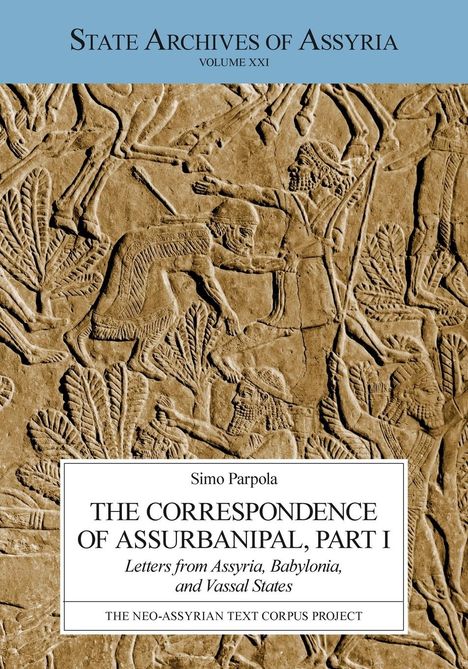Simo Parpola: The Correspondence of Assurbanipal, Part I, Kartoniert / Broschiert
The Correspondence of Assurbanipal, Part I
(soweit verfügbar beim Lieferanten)
- Verlag:
- Pennsylvania State University Press, 08/2024
- Einband:
- Kartoniert / Broschiert, Paperback
- Sprache:
- Englisch
- ISBN-13:
- 9789521094989
- Artikelnummer:
- 11962336
- Umfang:
- 240 Seiten
- Gewicht:
- 460 g
- Maße:
- 254 x 178 mm
- Stärke:
- 13 mm
- Erscheinungstermin:
- 14.8.2024
- Hinweis
-
Achtung: Artikel ist nicht in deutscher Sprache!
Klappentext
The first half of Assurbanipal's long reign (668-ca. 630 BCE) was a time of peace and great prosperity and political success for Assyria. But towards the middle of his reign a serious crisis broke out in Babylonia, unleashing a long, bitter and destructive conflict between Assyria, Elam and Babylonia, which was to shake the very foundations of the Empire. Less than a year after Assurbanipal had achieved a crushing victory over Elam, annexed the country to his realm and was at the apex of his political power, his brother ¿amä-¿umu-ukin, installed years before as a puppet king in Babylon, rebelled with the aid of Elam and the Chaldean and Aramean tribes of Babylonia. The revolt was crushed only five years later, leaving Babylon in ruins and sowing insidious rancor and hate among its citizens; the conflict with Elam went on for three more years. The present volume presents a critical edition of all currently known letters authored by Assurbanipal as king of Assyria as well as 61 letters sent to him or his agents during his reign. Most of these texts pertain to the ¿amä-¿umu-ukin revolt and the conflict with Elam, and provide a fascinating "ringside" view to these catastrophic events, which are otherwise known only from propagandistic and tendentious royal inscriptions. Almost half of the texts have never been edited or translated before and very few of them have been translated after 1935. They constitute an invaluable source not only for the study of Assyrian history but also of the personality and psyche of the last great king of Assyria.

